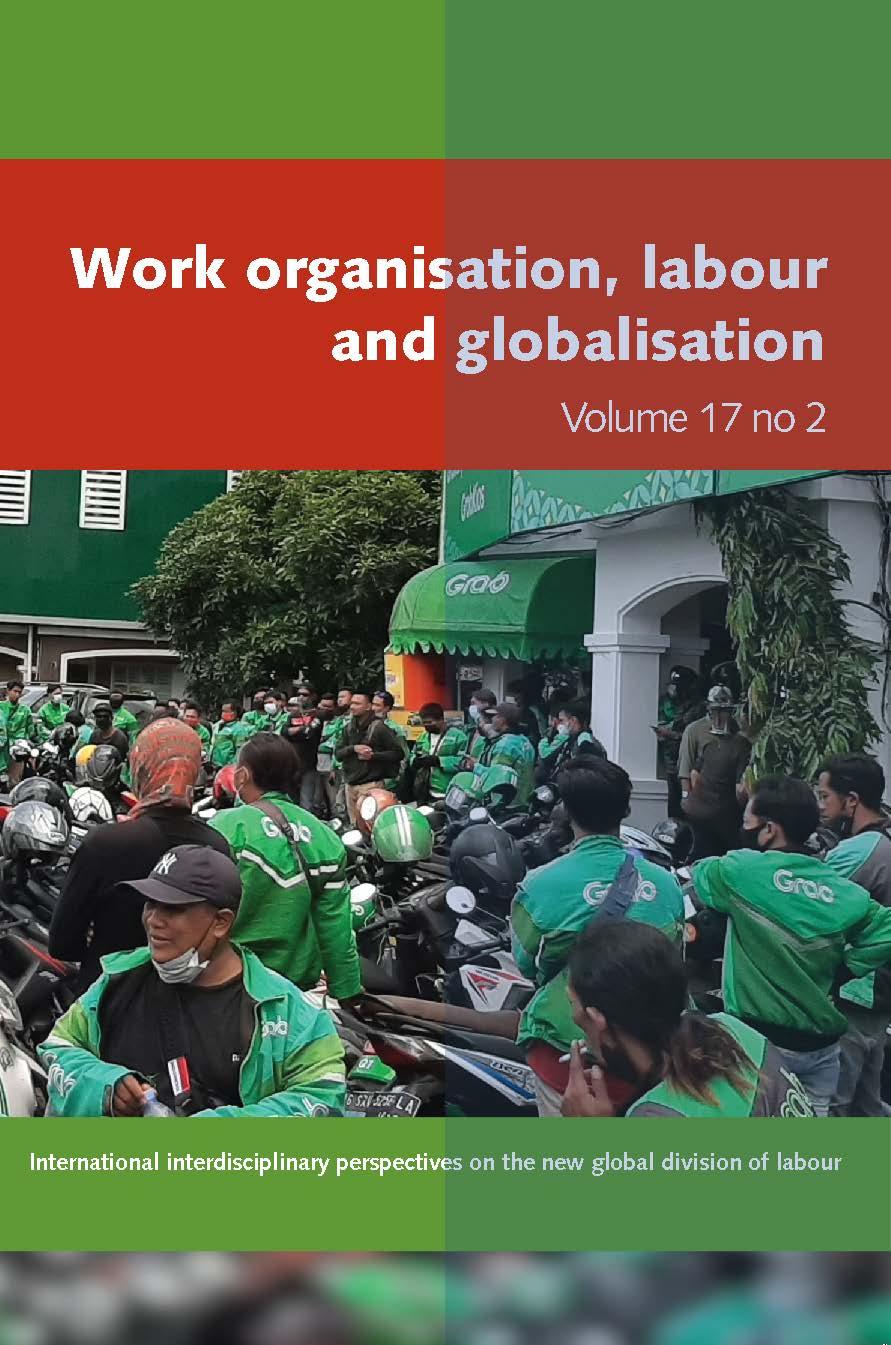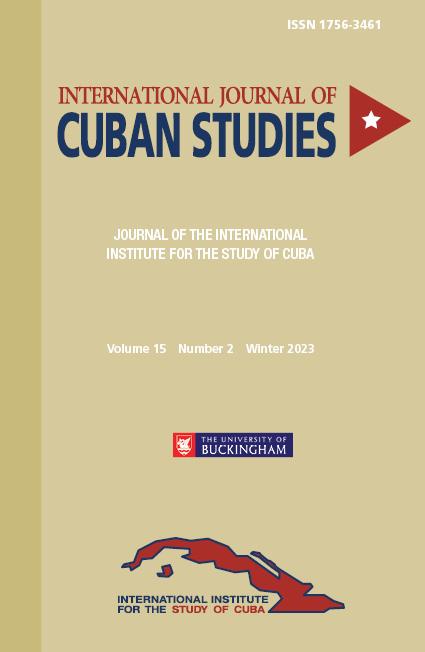The New Global Division of Labour and Moving Forward in Hard Times
 The latest issue of Work Organisation, Labour and Globalisation Volume 17, Issue 2 continues to bring together research on the new global division of labour, combining theoretical analysis with the results of empirical research in a way that is accessible to both the research community and to policy makers.
The latest issue of Work Organisation, Labour and Globalisation Volume 17, Issue 2 continues to bring together research on the new global division of labour, combining theoretical analysis with the results of empirical research in a way that is accessible to both the research community and to policy makers.
In Digital reputation, skills and uncertainty reduction on global digital labour platforms, Niels Beerepoot, Bart Lambregts and Jorien Oprins, look at how feedback mechanisms help reduce uncertainty when trading via a platform. Henrique Amorim, Ana Claudia Moreira Cardoso and Maria Aparecida Bridi, analyse Industrial platform capitalism : Outsourcings, syntheses and resistances, and observe that it spreads forms of exploitation and labour relations devoid of rights which is met by resistance from workers.
In Searching for a better job : Indonesian gig workers and the limits of decent work agendas Arif Novianto, Anindya Dessi Wulansari and Yeremias T. Keban draw on surveys, from “peripheral capitalism country”, and reveal that only two of the ten International Labour Oranization decent work indicators are met for platform drivers. In But which skills? : Natural Language Processing tools and the identification of high-demand skills in online job advertisements Gianni Anelli discusses the relevance of data from online job portals for monitoring which skills are in high demand. Susana Herrero Olarte examines The minimum wage in Ecuador : Its impact on poverty, inequality and labour market structure, Khleef A. Alkhawaldeh and Ala’a Al-Oran’s qualitative research article explores Attitudes of international non-governmental employees towards working from home in Jordan.
In Influence of career commitment and employee competency on career management : Evidence from IT workers in Nepal authors Abhishek Risal, Niranjan Devkota, Krishna Dhakal and Udaya Raj Paudel use quantitative methods to analyse data from a structured questionnaire of 232 Indian IT workers. Wasantha Rajapakshe and T.G.S.D. Chandrasiri aim to pinpoint factors affecting the job security of office-based employees in Job security in the apparel industry in Sri Lanka : A study of determining factors. In A new subjectivity in digital platform capitalism? : Marginal notes on power and conflict in the time of algorithms Federico Chicchi and Marco Marrone consider the emergence of transnational mobilisation of couriers, drivers and other platform workers illustrating the article through their review of 3 books; Labour Conflicts in the Digital Age: A Comparative Perspective, Digital Platforms and Algorithmic Subjectivities (2022), and Digital Labor (2022).
 In the International Journal of Cuban Studies Volume 15, Issue 2 Dr Al Campbell Introduces the issue in Moving Forward In Hard Times, and In This Issue with an editorial documenting the central contribution of the Trump/Biden augmented Blockade to Cuba’s ongoing economic hard times suggesting that shining a light on its illegal activities will contribute to someday making the US end its aggression.
In the International Journal of Cuban Studies Volume 15, Issue 2 Dr Al Campbell Introduces the issue in Moving Forward In Hard Times, and In This Issue with an editorial documenting the central contribution of the Trump/Biden augmented Blockade to Cuba’s ongoing economic hard times suggesting that shining a light on its illegal activities will contribute to someday making the US end its aggression.
In Trumpism, Cuban Americans, and the Fetishism of Politics Rodney A. González Maestrey analyses the transfigured way in which President Trump and the Cuban-American far right exercised their power. Sergio Truebas Acosta considers Inflation in Cuba: An Analysis from the Perspective of the Main Nominal Anchors of Monetary Policy. Helen Yaffe examines Cuban Medical Internationalism: A Paradigm for South–South Cooperation in the context of Cuba’s presidency of the Group of 77 + China. Joe Pateman and John Pateman ask Why Has Marxism-Leninism Succeeded in Cuba?
In Socioeconomic Impact of Cuba’s Sports Results in the Olympic Games José Ramón Sanabria Navarro, William Alejandro Niebles Núñez and Yahilina Silveira-Pérez analyse the socioeconomic impact of Cuba’s sports results between 1896–2020, the composition of the sports industry and its relation with Cuban society. Ruslan Muñoz Hernández, Alexis Jesús Rouco Méndez and Beatriz Fernández González article El Verticalismo Residencial en La Habana Promovido por La Ley de Propiedad Horizontal (1952–1959) demonstrates how the implementation of the Horizontal Property legislation marked the vertical take off of the residential buildings in El Vedado, shaping Havana’s skyline, almost unchanged for six decades.
Stay up-to-date with the latest research highlights by signing up to the Pluto Journals newsletter!

